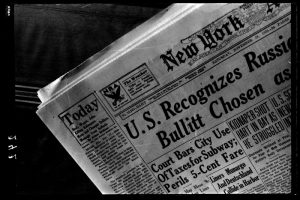Just in 13 months, American society will face a real historical dilemma: retain Donald Trump in the White House for 4 more years, or fire him from a position where he has already caused too much damage, both to his own country and to the rest of the world.
Formally around 255 million people will be able to make the decision on the electoral day of Tuesday, November 3, 2020. Really, as has almost always happened in the past, only between 135 and 140 million citizens will go to the urns; that is, 4 out of every 10 inhabitants of the nation that for more than a century has been the greatest military and economic force in the world. Very few – less than 2 percent of the global population -, considering the influence that the United States still has on environmental, political and cultural issues on the planet.
Stay as President until 2024 or be taken out of office, there is little doubt that the Trump factor has already triggered a series of transformations in the exercise of power: the demand for exclusion and selfishness as government values, in direct confrontation with the rhetoric about freedom and democracy that both served to promote the interests of this country around the world.
Beyond the noise of the imminent start of election campaigns, as happens in all elections in which the president in office seeks re-election, the next will be, especially a referendum. Trump or not Trump is undoubtedly the issue.
With a propaganda capacity comparable to that of the Third Reich at its best, Trump has managed to build his own triumph rhetoric. “The best president in history,” he says, has managed to maintain national economic growth in a context of international slowdown; although based on widening the economic inequality between the mega-rich and the rest of society and the abandonment of social solidarity as a fundamental value of a nation that for a long time was a model in equity of opportunities that led to a huge middle class.
It also presumes, from the logic of isolationism that defines it, that in these years the United States has not been involved in any new armed conflict. Although, he says he is convinced that “trade wars are good and easy to win”; This despite his great defeats against China – today the world’s largest economy – and numerous attempts to win the grace of some of his country’s historical enemies: from Vladimir Putin, the former KGB agent, to Kim Jong-un, the North Korean leader, direct heir to a dynasty of dictators personally created by José Stalin.
Able to live permanently in the scandal, the character who says he would be able to shoot someone on Fifth Avenue in New York without losing the support of his fans, Trump has been the most unpopular president of his country for three years.
Without having obtained the majority of the citizen vote (due to the indirect election system he arrived at the White House with 47 percent of the votes), President Trump has managed to maintain the support of the main group that brought him to power, the white men over 65 years (especially evangelicals from the center of the country), which, according to all previous trends, represent a third of the people who do vote.
Trump’s “national-populist” speech can be understood as an effort to maintain that base of support, or also as the natural vision of a character that reflects his own personal history that he had to live as a junior of a privileged family in the New Jersey from the 40’s of the last century.
In any case, his open contempt for women, immigrants (Latinos or professing the religion of Islam, for him there seems to be no difference) and rejection of anyone who does not reflect his own profile (male, Anglo-Saxon, money-worshiper) and fame), have been much more than election flags.
Although his promise of a “great wall” of 2,000 miles along the entire border with Mexico has been fulfilled in a few miles of a replacement fence in southern California, and his threat to expel the country to 11 million “bad men”, “rapists” and “criminals”, as well as their attempt to prohibit the entry of any Muslim, have been severely stopped by various judicial instances, such details have not prevented him from proclaiming the victory of a significant amount of positions of a badly concealed racism that its rhetoric drives.
“I use Mexico to defend our border,” says Trump, referring to his effective blackmail that forced the Mexican government to devote 27,000 military to stop migration, especially Central America, to the north. Something similar Trump has achieved with his other great promise: destroy NAFTA. Although then he signed with Mexico and Canada a new agreement very similar to the “worst trade agreement in the history of mankind”, which probably will not be ratified by the US Congress itself.
In any case, win or not reelection, surely Trump will continue to declare himself as a great winner. The remarkable growth of neo-Nazi and extreme right movements in several European countries, from Poland to the United Kingdom itself, the strengthening of populist and authoritarian political leaderships in Brazil, Turkey, as well as the continuous strengthening in many places of the world of tools of communication to distort facts and spread lies, could well be considered as symptoms of the Trump phenomenon.
With or without impeachment
Back to the polls. After what happened in the last presidential election, when all the surveys and scientific analyzes of the most prestigious experts gave Hillary a probability of triumph close to 100 percent on the morning of the election day, it seems unwise to deal with forecasts ; maybe around 10 p.m. on Tuesday, November 3, 2020 is a good time to start.
It is true that in a “normal scenario” –whatever that means–, the dynamics of recent years make it possible to assume that Trump will continue to occupy the central track of the political circus. The very revelation of his attempts to use the Ukrainian government to hit the son of Joe Biden (his most likely electoral opponent), seems to guarantee polarization will remain part of the day to day, at least until the day after the elections.
The real chances of a political trial progressing for what seems like a clear case of “treason” are very small, as Republicans remain a majority in the Senate and have so far never have insubordinate against their leader.
According to the same “normal scenario”, since the beginning of the century the demography of the electoral universe itself favors the Democratic Party – about 20 million Latinos could vote, probably two-thirds will. While the very structure of the Electoral College continues to favor the Republican party – due to the way in which an important number of local congresses redefined the boundaries of the electoral districts.
It is perfectly possible a scenario in which who is able to get about 70 million votes will win the White House (depending, of course, on its specific impact on states with a history of changing preference, such as Ohio, Pennsylvania and Florida. It seems unlikely that citizens of both coasts leave behind their preference for a Democratic candidacy, neither the West Coast with a labor force close to the digital economy of services, nor on the East Coast, with its important presence of large financial conglomerates of necessarily international dimension.
The same could be assumed of the southern and central part of the country, where economic inequality has grown and it is more or less easy to resort to the classic formula of using a minority, such as immigrants, as a scapegoat for all evils, real or imaginary
As a kind of historical reference, what happened in California in the 80’s could be recovered, when a Republican candidate, Pete Wilson, managed to recover 20 points of disadvantage in the polls to, with the sadly celebrated Initiative 187, win the governorship. Because various courts revealed the discriminatory and anti-immigrant nature of their proposals, 187 never went into effect and Wilson was not reelected. In addition, the adventure helped the Republican Party lose the largest state in the country for decades.
In any case, it seems unavoidable is that in the next presidential election everything will revolve around the peculiar personality of President Trump and his daily twitter missiles.
And although formally it will be the citizens who make the final decision, the virtual war between the power groups – inside and outside the country – as well as the technical capacity of the campaign teams, will define the parameters in which the central question will be formulated during the day of that Tuesday 3, “Trump stays 4 more years or should he be fired?”.
The next day, whatever happens, it seems more or less impossible, to suppose that Mr. Trump is able to recognize some kind of failure. In any case, the evaluation will involve discovering the true extent of the setback that the Trump era represented for the rest of us.










